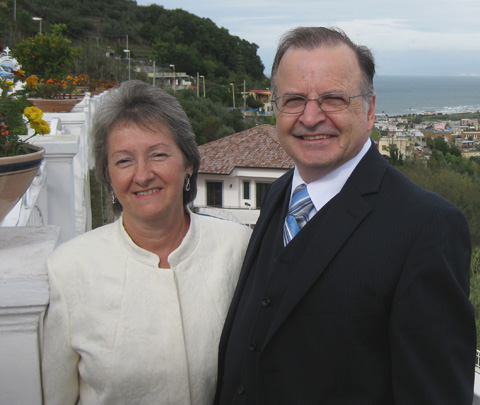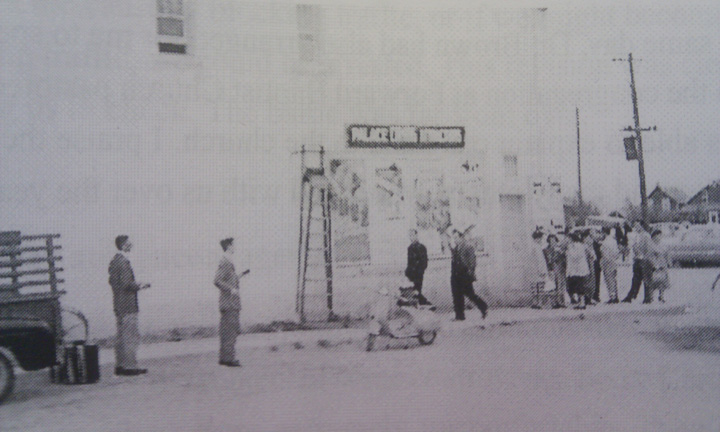Latest
-
Objections to the Christian Faith from the Unchurched and De-Churched
 Tue Dec 02, 2014
Tue Dec 02, 2014
by Resurgence -
Craig Groeschel: We Innovate for Jesus
 Tue Oct 14, 2014
Tue Oct 14, 2014
by Resurgence -
Mark Driscoll: Revelation
 Tue Oct 07, 2014
Tue Oct 07, 2014
by Resurgence -
RESURGENCE LEADERSHIP #034: JOHN PIPER, WHY I TRUST THE SCRIPTURES, PART 2
 Tue Sep 30, 2014
Tue Sep 30, 2014
by Resurgence -
Resurgence Leadership #033: John Piper, Why I Trust the Scriptures, Part 1
 Tue Sep 23, 2014
Tue Sep 23, 2014
by Resurgence

Archives
Church planting in 0.5% evangelical Quebec

Marc Pilon is a church planter serving in the very difficult context of Quebec. God is doing some amazing work there, and we think you will appreciate Marc’s story of how God has worked through a multi-generational heritage of sacrifice and persecution to advance the gospel in Quebec.
A story of three generations
In January of 2011, I had the joy of planting a church in Sherbrooke, Quebec. By God’s grace, in barely two years we grew from 100 to nearly 500, baptizing more than 100 people in that time. We experienced growth like I had never seen or heard of in my thirty years growing up in the evangelical church in Quebec, but our church was born out of a heritage of men and women willing to pay the price to reach the lost.
Our sending church paid a heavy price when they sent out 100 people (30% of their members) with my wife and me to start this new church plant, and they are continuing to pay the price even three years later. But they do not regret it. They are seeing the lost being reached, and they themselves received a heritage of willingness to sacrifice whatever is needed to advance the gospel.
The senior pastor at our sending church was in turn pastored by Lorne Heron, a missionary from English Canada who came to Quebec in the early 1950s to reach the French-speaking people of Quebec with the gospel. One of the first things he did was to hand a copy of the New Testament to my grandmother. He and other missionaries at that time were persecuted and jailed for distributing New Testaments and preaching the gospel in the streets of Northern Quebec.
Our church was born out of a heritage of men and women willing to pay the price to reach the lost.
 In his autobiography, Heron recounts the persecution faced by those early pioneers: “In those years, a total of 44 arrests were made, with a total of more than 8 years of prison time handed down. Christians were beaten up, dragged down the street, and punched. The town fire truck was brought out and fire hoses were used to spray them with sewer water. All this persecution generated publicity across Canada and the United States. So every week . . . there were reports in most Canadian newspapers.”
In his autobiography, Heron recounts the persecution faced by those early pioneers: “In those years, a total of 44 arrests were made, with a total of more than 8 years of prison time handed down. Christians were beaten up, dragged down the street, and punched. The town fire truck was brought out and fire hoses were used to spray them with sewer water. All this persecution generated publicity across Canada and the United States. So every week . . . there were reports in most Canadian newspapers.”
In hindsight, it is clear that more was accomplished by those missionaries sitting in jail than if they had been out visiting door to door.
By God’s grace the gospel kept moving forward. When my grandfather, Remi Pilon, received a copy of the New Testament, it changed his life. He was the only attendee at Heron’s first church meeting, and he ended up becoming that missionary’s first French-speaking convert in the province of Quebec. In turn, my dad, Gaetan Pilon, became a Christian and a pastor in Quebec, and now I am one of the rare third-generation French-speaking Christians in the province.

Marc's father, Gaetan Pilon
Sacrifice is the Christian heritage
Lorne Heron and many other pioneer missionaries in Quebec were ready to be persecuted and thrown in jail because that is the heritage they had also received.
The Christian heritage is one of being willing to risk and sacrifice everything for the sake of the gospel. The apostles were ready to pay the price. Every one of them was put to death or imprisoned for preaching the gospel. The apostle Paul wrote, “We endure anything rather than put an obstacle in the way of the gospel of Christ.” (1 Cor. 9:12).

Preaching the gospel in the streets of Quebec
The apostles received that heritage from none other than our Lord Jesus Christ, who gave himself up to save the lost. And Jesus received it from God the Father, “who did not spare his own Son but gave him up for us all” (Rom. 8:32).
Our salvation rests on this heritage, one that is willing to pay the price to save the lost.
How we can dishonor our heritage
One of the biggest mistakes any church can make to hinder the progress of the gospel is to stop honoring their heritage.
There are two ways we might do this:
- The first is by using the resources God has given us in a way that dishonors the heart and the convictions of those who have built before us. That means not acknowledging that our predecessors paid a steep price for us to have what we have today, and not taking into consideration the advice, wisdom and experience of those who have been there before us. Many church plants and planters are arrogant and guilty of this one.
- The second is much more subtle, because it actually seems to give lots of importance to heritage. It’s using the resources God has given us in such a way as to preserve the outside appearance, methodologies, buildings, structures, and musical styles of those who have gone before us, but in a way that actually dishonors the heart and convictions that motivated those pioneers to pursue their mission. Many established churches and pastors are guilty of this one.
The Christian heritage is one of being willing to risk and sacrifice everything for the sake of the gospel.
For the gospel to thrive, we need to honor the heart that motivated the missionaries, pioneers and church planters who have gone before us to sacrifice what they had for the advancement of the gospel.
How we honor our heritage
To honor the heritage that has been passed down to us means being ready to sacrifice our preferences, our comfort, our buildings, our methodologies, and our worship styles when they are keeping us from being most effective in reaching the lost—even when it means risking the life of our own church or our position as a pastor.
God gives us churches and resources not so we can maintain them, but so we can risk them in order to multiply them, and so that we may by all means save some (1 Cor. 9:22).
As a younger pastor, my prayer is that as I grow older, I might not become a worthless servant, content with maintaining what God has entrusted me, and that I would not build a museum to what God has done in the past, but that I would keep fighting the good fight. Not the fight about buildings, church names, and methodology, but the fight to save the lost, whatever the risk or sacrifice.
In Jesus we already have everything, so in the end, we don’t end up losing anything.
How can you honor your heritage?